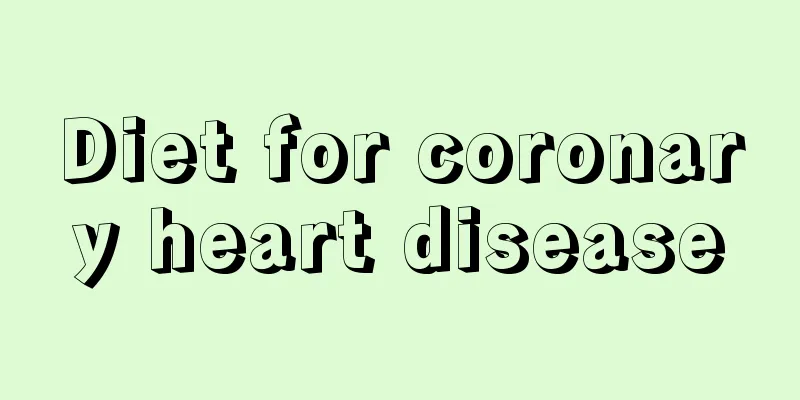Diet for coronary heart disease

|
Coronary heart disease is a common disease among middle-aged and elderly people, and it often brings people heartache and exhaustion. Why does a person's heart feel weak and blocked? This may be due to the influence of cardiovascular blockage and coronary heart disease. How to prevent coronary heart disease? In fact, you can pay more attention to your diet and eat less high-fat, high-calorie and high-sugar foods to help prevent coronary heart disease. Diet to prevent coronary heart disease: 1. Pay attention to total calorie balance and maintain ideal weight. In daily life, you should have three meals a day regularly and avoid being too hungry or too full. In addition, pay attention to the variety of food, and avoid excessive monotony or picky eating. 2. Limit excessive intake of carbohydrates (sugars), especially monosaccharides and disaccharides. Carbohydrates should account for 55-70% of total calories and are the main energy source. If you consume a large amount of sugars, especially monosaccharides and disaccharides, glucose, sucrose, maltose, etc., it will easily increase triglycerides and promote the occurrence of atherosclerosis. 3. Limit saturated fatty acids and increase unsaturated fatty acids. Regarding lipid intake, the general principle is a low-fat diet, so that the proportion of fat is only 15-25% of total calories, the ratio of saturated fatty acids to unsaturated fatty acids is 1-1.5, and cholesterol is controlled within 300 grams per day. Animal fat mainly contains unsaturated fatty acids. Excessive intake can increase total cholesterol and should be limited. 4. Increase the intake of fruits and vegetables to increase the intake of dietary fiber and vitamins. For patients with coronary heart disease, the total amount of staple food per day can be less than that of healthy people, but fruits and vegetables cannot be less. Fruits and vegetables are rich in dietary fiber and vitamins. Soluble cellulose has the effect of lowering blood lipids and protecting blood vessels. Vitamin C, vitamin E, and vitamin A can also protect the cardiovascular system and are extremely beneficial for preventing coronary heart disease. 5. Low salt and appropriate protein. On the one hand, salt intake is positively correlated with the incidence of coronary heart disease. On the other hand, hypertension and coronary heart disease go hand in hand. Therefore, patients with coronary heart disease should not consume too much salt, and less than 8 grams per day is appropriate. The onset of coronary heart disease is often related to seasonal changes, emotional excitement, increased physical activity, overeating, heavy smoking and drinking. To prevent coronary heart disease, middle-aged and elderly people should do appropriate exercise to strengthen their cardiopulmonary function. In addition, they can also improve the circulatory system including the cardiovascular system. |
<<: The hazards of coronary heart disease
>>: Treatment of allergic asthma
Recommend
Which is more terrible, cervical cancer or breast cancer
Which is more terrible, cervical cancer or breast...
Let's talk about the cost of tongue cancer
It is certain that medical treatment costs money,...
CT manifestations of ankylosing spondylitis
Ankylosing spondylitis is a very common disease, ...
How to treat necrotizing pancreatitis
Necrotizing pancreatitis is a type of acute pancr...
How many years can I wear an IUD?
For some friends who use IUDs, they may not know ...
How do sperm die?
Everyone knows that sperm are born in the testicl...
The most common advanced symptoms of esophageal cancer in the elderly
Elderly people should pay attention to various ad...
Is the mosquito killer lamp harmful to babies?
Summer is the time when there are the most words,...
Can dandelion treat gynecological inflammation?
Dandelion is a common plant in daily life. The me...
What are the harms of facial paralysis to the body
Facial paralysis is a curable disease with many c...
The most important preventive measures for laryngeal cancer
Among the many diseases in the oncology departmen...
How much does the second item of ovarian cancer cost
The specific cost is difficult to determine, whic...
What are the early symptoms of lung cancer? There are four types
In current medicine, lung cancer is an obvious re...
Basic steps of manicure
Many women like to go to nail salons for manicure...
Whole body fat burning exercises
Now everyone's living standards have been gre...









